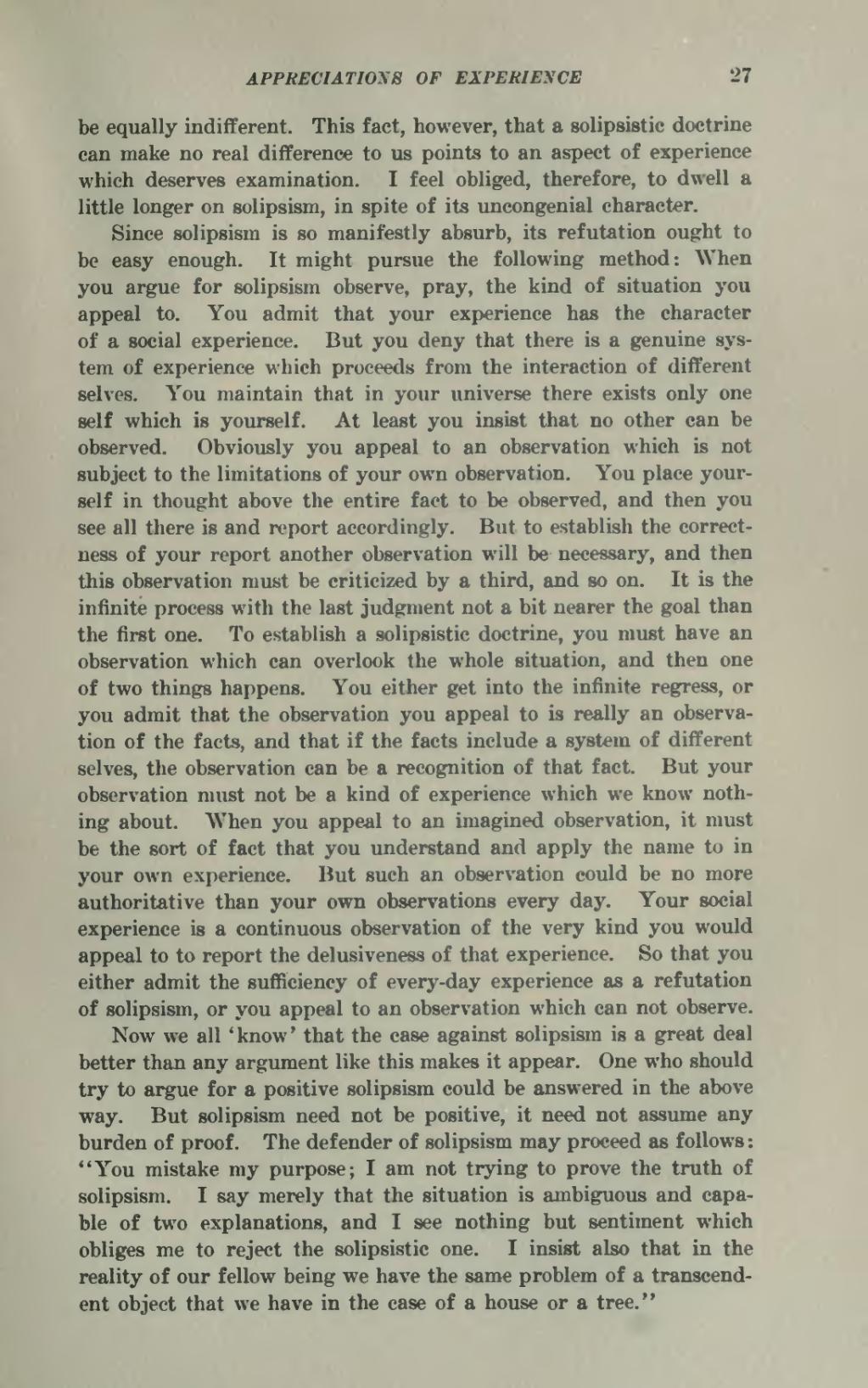be equally indifferent. This fact, however, that a solipsistic doctrine can make no real difference to us points to an aspect of experience which deserves examination. I feel obliged, therefore, to dwell a little longer on solipsism, in spite of its uncongenial character.
Since solipsism is so manifestly absurb, its refutation ought to be easy enough. It might pursue the following method: When you argue for solipsism observe, pray, the kind of situation you appeal to. You admit that your experience has the character of a social experience. But you deny that there is a genuine system of experience which proceeds from the interaction of different selves. You maintain that in your universe there exists only one self which is yourself. At least you insist that no other can be observed. Obviously you appeal to an observation which is not subject to the limitations of your own observation. You place yourself in thought above the entire fact to be observed, and then you see all there is and report accordingly. But to establish the correctness of your report another observation will be necessary, and then this observation must be criticized by a third, and so on. It is the infinite process with the last judgment not a bit nearer the goal than the first one. To establish a solipsistic doctrine, you must have an observation which can overlook the whole situation, and then one of two things happens. You either get into the infinite regress, or you admit that the observation you appeal to is really an observation of the facts, and that if the facts include a system of different selves, the observation can be a recognition of that fact. But your observation must not be a kind of experience which we know nothing about. When you appeal to an imagined observation, it must be the sort of fact that you understand and apply the name to in your own experience. But such an observation could be no more authoritative than your own observations every day. Your social experience is a continuous observation of the very kind you would appeal to to report the delusiveness of that experience. So that you either admit the sufficiency of every-day experience as a refutation of solipsism, or you appeal to an observation which can not observe.
Now we all ‘know’ that the case against solipsism is a great deal better than any argument like this makes it appear. One who should try to argue for a positive solipsism could be answered in the above way. But solipsism need not be positive, it need not assume any burden of proof. The defender of solipsism may proceed as follows: “You mistake my purpose; I am not trying to prove the truth of solipsism. I say merely that the situation is ambiguous and capable of two explanations, and I see nothing but sentiment which obliges me to reject the solipsistic one. I insist also that in the reality of our fellow being we have the same problem of a transcendent object that we have in the case of a house or a tree.”
